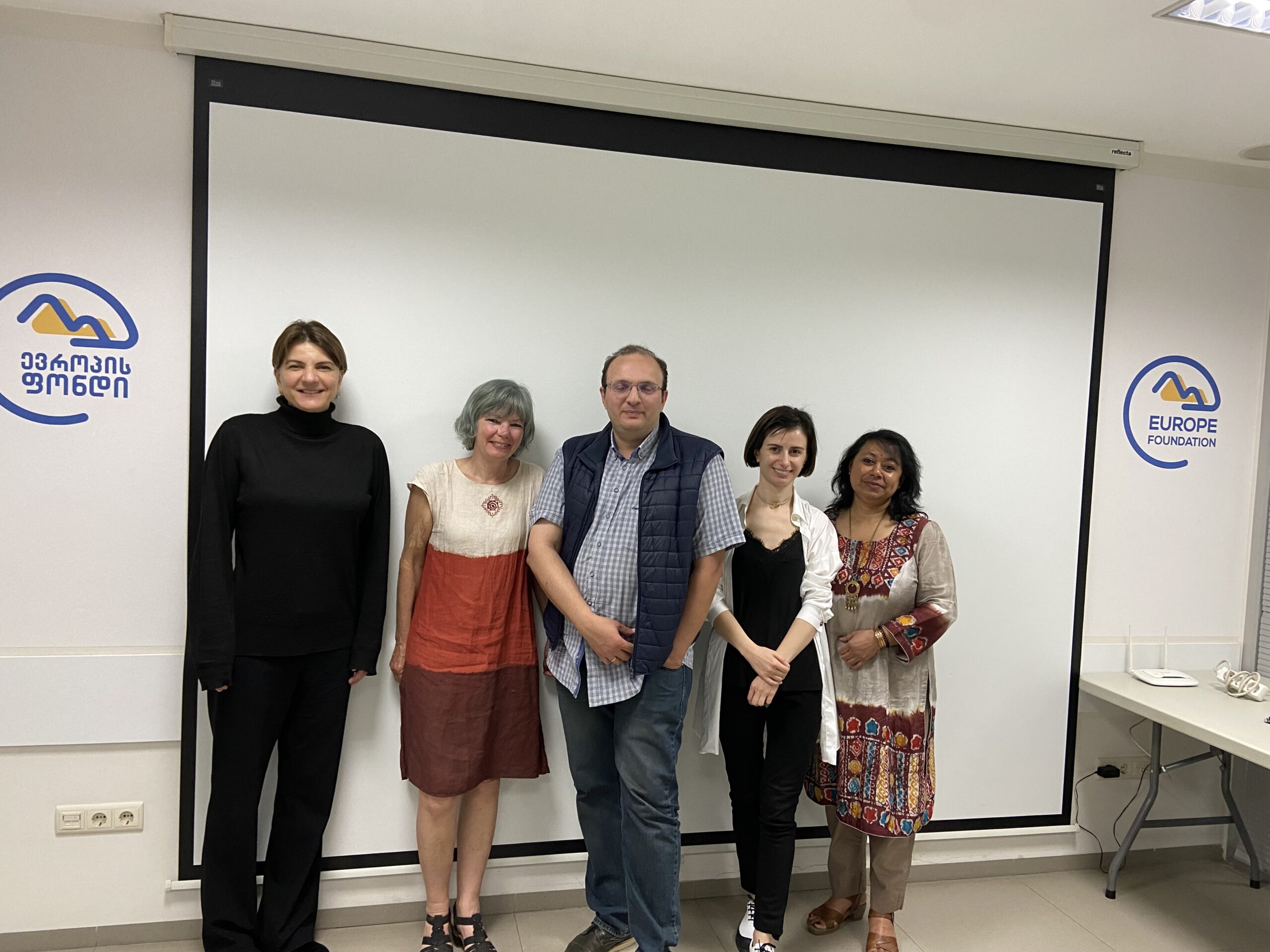This project is a cooperation between two Swedish organizations, Women Chapter International (WCI) and Coompanion Östergötland and one Georgian organization, Europe Foundation. As part of this project, WCI provided support in Digital Security and Policy Advocacy to vital actors, such as activists, media persons, civil society members, and others in Georgia. For this project, WCI engaged one of its board members, Monjun Nahar, and volunteer Ashraful Haque. They were paid by the project through Coompanion Östergötland.
a. Digital Security and Digital Hygiene Training WCI employed the Activity-Discussion-Inputs-Deepening-Synthesis (ADIDS) approach in its digital security and digital hygiene training sessions.
The first Digital Security Workshop, held from January 24- 26, 2023, included 21 representatives (162F) from 13 CSOs, including staff from the Europe Foundation, who participated in three half- day online sessions. The second workshop, focused on Training of Trainers (ToT), took place from October 25-27, 2023, with three representatives from three CSOs in attendance, all of whom had participated in the previous training. The primary objective of the training was to provide participants with practical, hands-on knowledge of digital safety tools, equipping them with essential skills to safeguard their digital presence. The training was structured in three distinct phases, each addressing different aspects of digital safety.
Phase One: Basic Training on Digital Hygiene The first phase consisted of a three-day session focused on digital hygiene. During this phase, participants learned the fundamentals of protecting their information and devices from common digital threats. Topics covered included creating strong passwords, recognizing phishing attempts, and implementing basic security measures to ensure their digital environments remain safe.
Phase Two: Advanced Training Session In the second phase, participants underwent a two-day advanced training session, delving deeper into sophisticated tools and topics. This segment covered the use of encrypted email services for secure communication, the importance of regularly backing up data, and the correct methods for restoring backups when necessary. Additionally, the training emphasized best practices for maintaining ongoing digital safety and addressing more complex cyber
threats.
Phase Three: Assessment and Readiness The final phase was a one-day session focused on assessing the participants ' readiness to conduct their own digital safety training. This assessment ensured that trainees were not only proficient in the skills they had learned but also capable of effectively transferring this knowledge to others in their networks. The objective was to thoroughly prepare them to confidently train others, thereby expanding the reach and impact of digital safety practices.
Outcome
The overarching goal of Women Chapter International’s digital safety training was to provide participants with practical, hands-on knowledge of essential digital safety tools. By the end of the program, participants were well-versed in protecting their information, securely communicating, maintaining backups, and preparing to disseminate this crucial knowledge within their communities, fostering a safer digital environment for all.
b. Advocacy Training on SMART Advocacy Approach In the advocacy training sessions, WCI provided
comprehensive training on the SMART Advocacy approach.
The objectives of the training were to:
• Build a common and clear understanding of the SMART Advocacy Approach
• Develop a clear and common understanding of the socio-cultural and political context of Georgia
• Enhance knowledge and practical skills to accelerate the advocacy process
• Formulate issue-based action plans to execute advocacy initiatives
As a result of the training, participants were able to:
• Establish a common understanding of the concept of Policy Advocacy
• Acquire practical knowledge and skills in the advocacy process
• Develop Advocacy Action Plans
During the first advocacy session in May 2023, 19 representatives from 15 CSOs, all women,
participated. The subsequent session in December included 16 representatives (15 women) from 12
CSOs. In this session, participants worked individually and in groups to draft advocacy action plans
within the framework of their ongoing EF projects.
This project started in 2022 and ended in 2024.

Leave a Reply